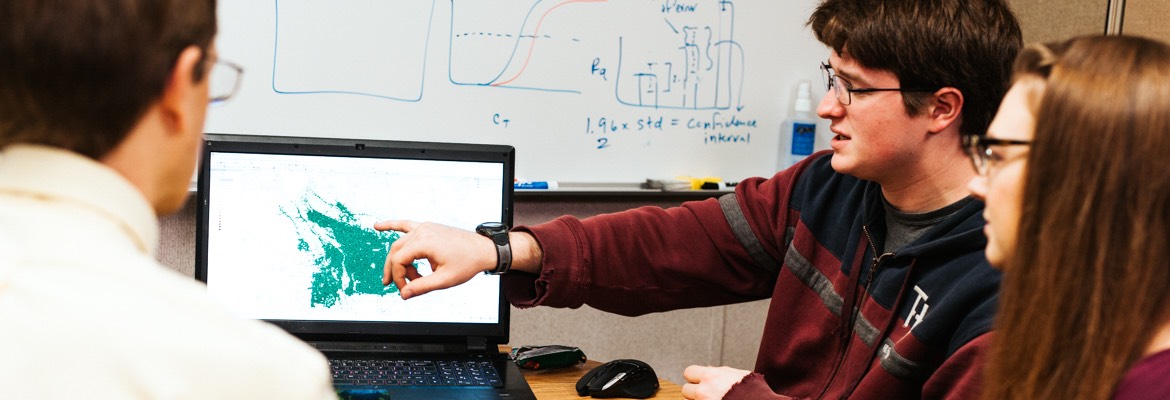Minor in Mathematics

Overview
A mathematics minor is offered with the completion of 24 credits, 6 of which must be upper-division. Students must consult with a department advisor. A minimum of 9 credits must also be unique to the minor (not counted toward any other requirements, including minoring in the same department as the major).
Those interested in earning a minor in mathematics may also find themselves considering engineering programs such as the B.S. in Robotics degree and the B.S. in Engineering. They may also be interested in Biola's B.S. in Computer Science program.
Courses
Below are the course requirements for this academic program. In addition to these program-specific requirements, all majors include Biola's traditional undergraduate core curriculum. For more program details, including a sample course sequence, visit Biola's academic catalog.
Curriculum Requirements
A Mathematics minor is offered with the completion of 24 credits, 6 of which must be upper-division. Students must consult with a department advisor. A minimum of 9 credits must also be unique to the minor (not counted toward any other requirements, including minoring in the same department as the major).
| Code | Title | Credits |
|---|---|---|
| Program Courses | ||
| MATH 150 | Calculus I | 4 |
| MATH 151 | Calculus II | 4 |
| MATH 204 | Introduction to Abstract Math | 3 |
| MATH 250 | Calculus III | 4 |
| MATH 291 | Linear Algebra | 3 |
| Select two MATH courses at the 300 or 400 level 1 | 6 | |
| Total Credits | 24 | |
- 1
See department for advising.